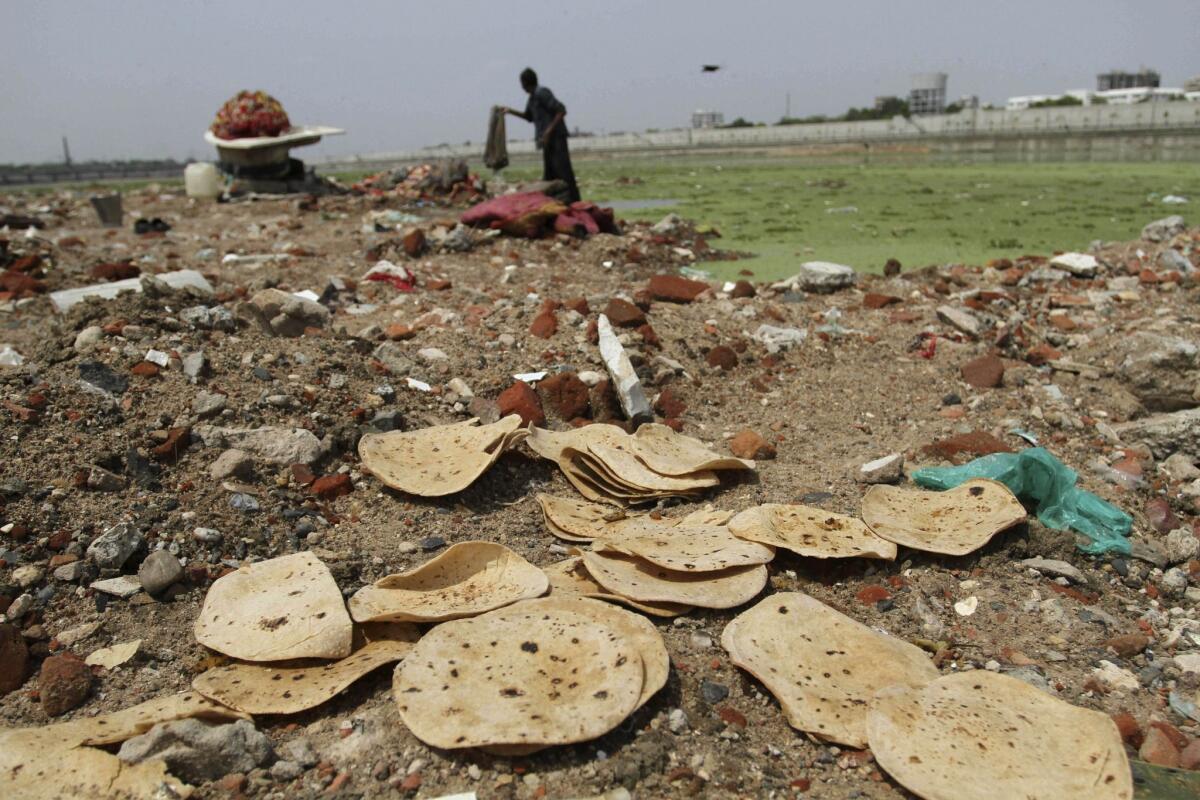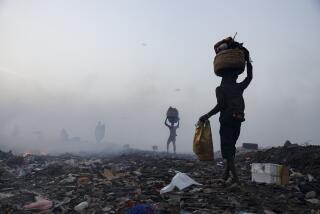One-third of food wasted worldwide, U.N. says

The world throws away one-third of food produced yearly, making food waste the third-largest source of greenhouse gas emissions behind those produced by the U.S. and China, according to a U.N. report released Wednesday.
The U.N. Food and Agriculture Organization study found 1.3 billion tons of food is wasted every year, contributing to economic losses that total $750 billion yearly.
The focus of Wednesday’s report, however, was to examine the environmental impacts of food waste. To that end, the U.N. estimated the carbon footprint of the problem is equivalent to 3.3 billion tons of carbon dioxide every year.
QUIZ: How much do you know about California’s economy?
The U.S.’ and China’s carbon footprints are larger; each produces the equivalent of nearly 7 billion tons of carbon dioxide for each country every year.
The report’s authors tried to put the food waste into context: For instance, food that is produced but not eaten uses up a volume of water equivalent to the annual flow of Russia’s Volga River, the longest river in Europe.
“All of us -- farmers and fishers, food processors and supermarkets, local and national governments, individual consumers -- must make changes at every link of the human food chain to prevent food wastage from happening in the first place, and re-use or recycle it when we can’t,” said FAO Director-General José Graziano da Silva.
The report also tried to pinpoint where in the food production process waste occurs and found most food waste occurs “upstream,” meaning after food is harvested, handled and stored.
In general, food waste in developing countries occurs during the agricultural production. Food waste that occurs at the retail and consumer level occurs more frequently in countries with higher incomes.
ALSO:
Ron Burkle’s Yucaipa buying Fresh & Easy stores from Tesco
Approved bill could give more business to California farmers, ranchers
More than 300 economists urge Obama to nominate Yellen as Fed chief
ricardo.lopez@latimes.com
More to Read
Inside the business of entertainment
The Wide Shot brings you news, analysis and insights on everything from streaming wars to production — and what it all means for the future.
You may occasionally receive promotional content from the Los Angeles Times.











